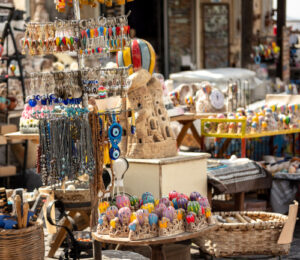
How South Africans Navigate the Line Between Authentic and Imitation
In a city like Johannesburg, the line between what’s real and what’s not isn’t always clearly drawn. Walk through a market in the CBD, and you’ll find rows of sneakers, perfumes, clothing, and smartphones that look identical to their branded counterparts but come at a fraction of the price. Across South Africa, navigating the space between authentic and imitation has become part of daily life. For many, choosing between the two isn’t about chasing status or image, it’s a matter of practicality, balancing cost with appearance.
In smaller towns and cities alike, markets and informal traders offer everything from Grade A smartphones to replica designer shoes. The choice is there every day, a genuine branded item at a premium, or a near-identical replica that costs significantly less. These decisions aren’t made lightly, but neither are they driven by naivety. South Africans know the difference. Often, choosing the replica is a conscious, practical decision rather than a gamble.
Authenticity in South Africa holds different weight depending on context. For items like car parts or food products, the real thing is non-negotiable. Counterfeit brake pads or imitation cold drinks carry risks that no savings can justify. In smaller towns and neighbourhoods, shopkeepers guard their reputations carefully, knowing that selling fake essentials could lose them their customer base overnight. Trust is essential in these transactions, and it runs deeper than the surface label on a bottle or the logo on a box.
In other areas, the distinction blurs. Markets across Johannesburg, Durban, and Cape Town are filled with clothing and accessories designed to mimic international brands. Buyers know what they’re purchasing, but for many, having something that looks the part is enough. The appeal lies in maintaining a certain appearance without the financial stretch required to secure original products. It isn’t just about image, it’s about navigating everyday life in a way that makes sense economically.
 Authenticity also plays out in quieter ways. Street-level DJs, for example, often operate with sound systems and equipment that aren’t top-end, yet they deliver the same atmosphere and energy. Markets and spaza shops make use of homemade signage rather than professionally printed banners, blending original craftsmanship with practical necessity. In these cases, authenticity isn’t about luxury or status, it’s about making things work within the reality of available resources.
Authenticity also plays out in quieter ways. Street-level DJs, for example, often operate with sound systems and equipment that aren’t top-end, yet they deliver the same atmosphere and energy. Markets and spaza shops make use of homemade signage rather than professionally printed banners, blending original craftsmanship with practical necessity. In these cases, authenticity isn’t about luxury or status, it’s about making things work within the reality of available resources.
The issue extends into the betting and gaming world as well. While official lottery tickets and betting slips remain tightly controlled, stories circulate about counterfeit tickets and imitation scratch cards, especially in smaller towns where formal checks may be less frequent. Again, reputation and trust become crucial. People rely on personal connections and longstanding relationships with shopkeepers and agents to ensure authenticity. Verifying that a ticket is genuine is often a simple, human transaction, a question asked, a nod given, rather than a technological check.
Throughout these examples, there’s a consistent thread, authenticity isn’t always about the object itself, but about the intent behind it. In some areas of life, such as safety and food, the real thing is essential. In others, like fashion or consumer electronics, the focus shifts to what is attainable and what makes sense within each person’s economic reality. South Africans don’t approach these choices passively. There is a clear-eyed awareness of what’s real and what isn’t, paired with a practical understanding of when it truly matters.
This quiet negotiation between real and replica is woven into the rhythm of South African urban and township life. It’s visible in taxi ranks, in market stalls, and in the subtle choices people make about where to spend their money and how to present themselves. Authenticity, in this context, is not just about labels or logos. It’s about honesty with oneself and with the community. It’s about knowing what you’re buying, owning that choice, and carrying it with quiet confidence.



